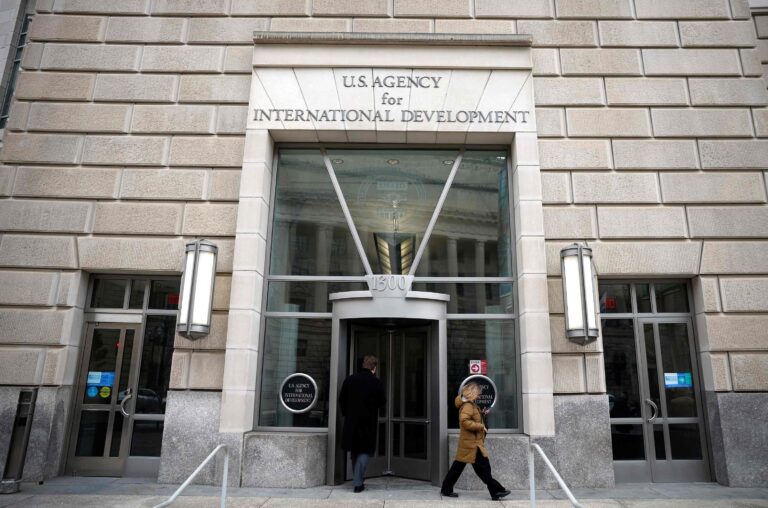The Sin of the Spies – Who’s in Charge? Moses renamed Hoshea son of Nun “Joshua” (Bamidbar 13:16). Prior to the departure of the twelve spies, Moshe Rabbeinu changed the name of his disciple Hoshea to Yehoshua. That changed contained within it a prayer that Hashem save Yehoshua from the plot of the spies. It remains to be explained, however, why Moshe agreed to send the spies in the first place if he was aware of a plot to malign Eretz Yisrael. In addition, why did he pray for Yehoshua alone and not for Calev and the other?
The Vilna Gaon in Emuna VeHashgacha explains that there are three ways in which God manifests His Divine Providence. The first is called hanhagah nissis, the manifestation of overt miracles. This was the manner in which Hashem related to us during the forty years in the desert. A Cloud of Glory accompanied us by day and a pillar of fire by night; we ate the Heaven-sent manna; and our thirst was quenched by water from a well that flowed from a rock, which accompanied us on our journey. When we sinned, Divine retribution followed immediately in an unmistakable fashion.
The second type of Divine Providence is called hanhagas nissim nistarim. In this stage, G-d relates to us through hidden miracles. This describes the manner in which God related to us in Ertez Yisrael, prior to our exile. At that time, a direct relationship between nature and Torah observance was evident. When we kept the mitzvos and toiled in Torah, the rains fell in their proper times and amounts, health and wealth were our lot; and when we sinned, drought and famine followed.
Since our exile from Eretz Yisrael, we have experienced the third type of Divine Providence, hester panim. In this stage, God hides His face from us and our ability to see God’s Divine Providence in the world becomes impaired.
The Vilna Gaon explains that the various manifestations of Divine Providence differ only in our perception. In reality, God controls and guides the world equally in a period when we experience Divine miracles as a matter of course, – and in a period where all we see is the workings of nature. God merely hides His face in the latter period.
Our forefathers in the desert were aware that upon entering Eretz Yisrael the manner in which Hashem related to us would change from one of open miracles to one of miracles within nature. Manna would no longer descend from the heavens; rather we would plow and plant and harvest in order to eat. A well would no longer accompany us; rather we would depend on rainfall to quench our thirst.
Their mistake, however, was to reason that if their lives were apparently subject to the same natural order as the rest of the world, then their ultimate success or failure depended on their own military prowess. This was a grievous error.
IT was this mistaken outlook from which Moshe prayed that Yehoshua would be spared. Moshe reasoned that he could better prove to the people their misstate by letting them actually see Eretz Yisrael. He hoped that they would realize the impossibility of conquering Eretz Yisrael with their own might. And yet God had assured them that they would in fact conquer the land. They should have conclude that Hashem obviously planned to continue aiding them, even if in a less openly miraculous fashion.
Yehoshua, who was to lead Klal Yisrael during this new stage of Divine Providence, required a special prayer that he be spared from a distorted perspective on nature. The name Yehoshua signifies – Hashem Yoshiah – May G-d save you. The Divine name Hashem represents the synthesis between the apparent cause and effect of the natural world and Hashem’s intimate spiritual link with man – the Yod represents G-d’s creation of Olam Haba and the Heh the creation of this world. Moshe prayed that Yehoshua see nature as nothing more than a veil to G-d’s direct Divine Providence. Hence Nature – HaTevah – and Elokim are numerically equivalent.
Moshe told the spies to bring back the fruits of Eretz Yisrael precisely to drive home the lesson that they would still be completely dependent on God’s beneficence. Without water, fruits cannot grow, and in Eretz Yisrael water depends solely on rainfall, which is obviously not in man’s hands. Moshe wanted them to recognize that even though there would be more effort required to secure a livelihood in the natural setting of Eretz Yisrael than in the desert, the final result would depend no less on G-d than when the manna descended directly from Heaven.
Unfortunately, only Calev and Yehoshua grasped this point. The others saw only that it was beyond their “natural” abilities to conquer the land, and concluded that even God Himself, as it were, could not help them since He had chosen to let them be governed by the natural order. This reasoning led to the purposeless crying on the night of Tisha B’Av when the people wept as a sign of hopelessness.
To correct the purposeless tears of that Tisha B’Av eve in the desert, our Batei Mikdash were destroyed on Tisha B’Av and we were thrust into galus where we would come to see clearly our dependence on Hashem. But rather than crying of our helplessness, our tears on Tisha B’Av must proclaim: “Hashem, You promised that we would be redeemed from this galus. We cannot achieve this redemption through our own efforts. Therefore You must redeem us. ”
Rabbi Yerucham Levovitz, the great Mirrer Mashgiach, explains the Mishnah at the end of Sotah to mean that Mashiach will not come so long as we attribute our successes and failures to “natural” causes. As .long as we look for political, economic and sociologhcal explanations of world events and excuse ourselves from Torah learning on the grounds that we must earn a livelihood, we will not merit an end to our exile.
Let us strengthen our faith and trust in Hashem so that we can finally dry the tears of Tisha B’Av and celebrate it with jubilation, for a Redeemer will have to come to Zion.










